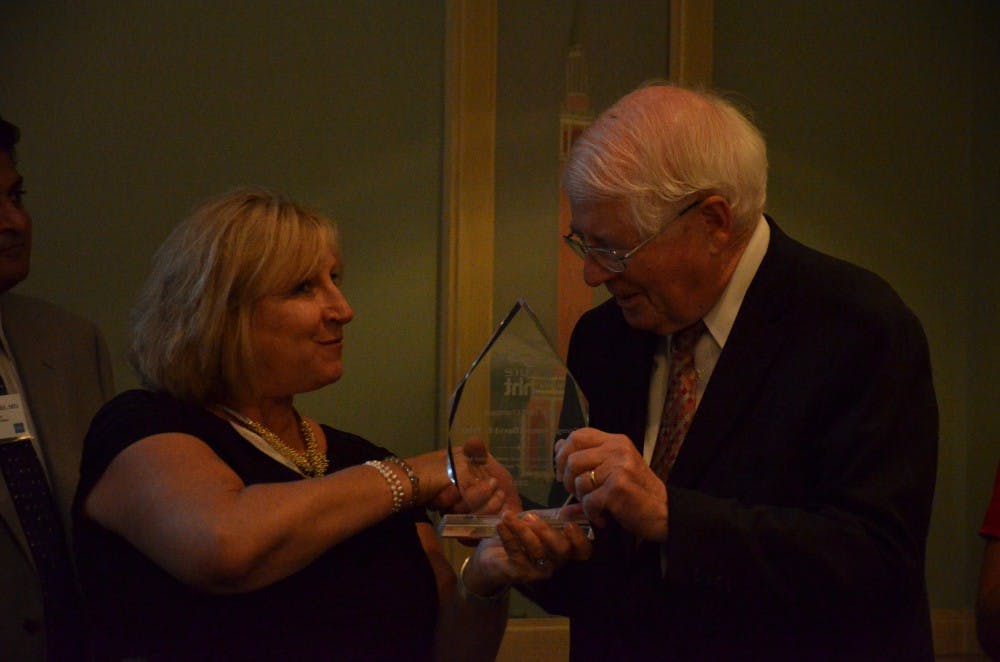Charity workers, a congressperson, UNC researchers and patients afflicted by a rare disease all gathered in the Carolina Club on Thursday evening to celebrate a grant from the Center for Disease Control and Prevention to help combat HHT.
HHT, Hereditary Hemorrhagic Telangiectasia, is a genetic mutation of the the blood vessels and affects around 70,000 Americans. It is a lifetime disease and an issue that U.S. Congressional Representative David Price cares deeply about.
The grant originated from the combined efforts of the charity Cure HHT and Dr. Raj Kasthuri, a professor at UNC and director of the UNC HHT Center. The political work was largely completed by the office of U.S. Rep. Price.
Cure HHT Executive Director Marianne Clancy said she and Dr. Kasthuri met with Rep. Price and his team in Washington, D.C.
"(Rep. Price) understood immediately how important (the grant) was and the healthcare savings that could occur with this project,” Clancy said.
The money will aim to help overcome some of the most common obstacles faced by those afflicted by HHT. These include HHT’s late diagnosis which, even as a lifetime disease, is commonly not diagnosed until a patient’s late 20s. According to Cure HHT, around 90 percent of HHT patients are undiagnosed. With Rep. Price's assistance in securing funding from the CDC, those problems are one step closer to being solved.
“What we have been able to achieve with Mr. Price’s support is a big deal," Dr. Kasturi. "If you ask me from a provider and patient perspective what were the two biggest needs in HHT today, it would be, one, awareness, not just awareness on the patient’s side, but awareness on the provider’s side and access to care," Dr. Kasturi said.
With only 25 HHT-specific centers in North America, accessing treatment is difficult for those with the disease. With symptoms of HHT being similar to those of hemophilia, outfitting hemophilia centers to treat HHT to increase HHT patients' access to care is one way the grant will help treat HHT.
Cure HHT board member Jim Lapides, an HHT patient, said treatment helped him live a better life.



